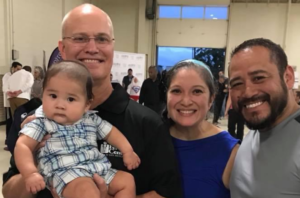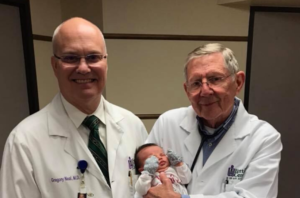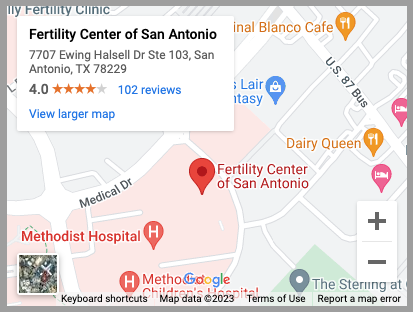IVF AND AGE – SAN ANTONIO – FERTILITY TREATMENT
At The Fertility Center of San Antonio, we are pleased to have achieved some of the highest in vitro fertilization, or IVF, success rates in the entire country. Unlike some fertility clinics with high success rates, we have achieved these rates while working with patients of all types, including those with complex fertility issues and women who are aged 35 and older. This latter category of patient can be particularly challenging to work with because even women without fertility issues begin to see their chances of becoming pregnant dwindle after they reach the age of 35.
The closer a woman is to the age of 40, the more likely her age alone may be considered a contributing factor in her infertility if a couple has tried to achieve conception unsuccessfully for six months or longer. At this point, it is highly recommended that such couples meet with an experienced fertility expert, such as the four-doctor team that leads The Fertility Center of San Antonio. Our doctors can discuss the relationship between IVF and age during consultations at our San Antonio practice so that such couples can understand both the benefits of treatment and the possible hurdles that could prevent them from achieving successful pregnancy.
Are you aged 35 or over and having difficulty becoming pregnant, although you and your partner have been trying for six months or longer? Our team of accomplished IVF professionals may be able to help. Visit The Fertility Center of San Antonio today.
How Age and IVF Success Rates Are Related
In general, by the time a woman reaches the age of 35, her peak years of fertility are behind her. Of course, this is not a hard-and-fast rule. Some women remain perfectly fertile at the age of 35 while others, unfortunately, reach their peak well before that age. However, usually by this time, women have a smaller number of eggs in their ovarian reserve, and those eggs that are left are generally of lesser quality than they had been when she was younger. In essence, this represents a double threat to her chances of becoming pregnant while increasing the risk of miscarriage if she does conceive.
Considering all of this, most women aged 35 and above are faced with at least some fertility issues. While these fertility issues may not preclude her from becoming pregnant, they certainly can interfere with successful pregnancy. If other male or female infertility factors are present, age may be the factor that ultimately prevents conception.
In such cases, IVF often offers the best chance of successful pregnancy. While IVF success rates diminish with each year that a woman is above the age of 35 – and, yes, the age of the male partner can influence IVF success rates, too, if not as drastically – a couple is still far more likely to achieve pregnancy through IVF than without treatment, all things equal.
If a woman does not have eggs of sufficient quality, we may suggest the use of donor eggs in IVF treatment. This could increase the odds of success considerably, especially in patients over the age of 40.
Learn More about IVF and Age
To learn more about IVF and age, please contact The Fertility Center of San Antonio today.










